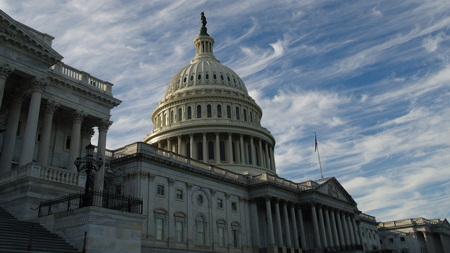
The Roundtable and 13 other national real estate organizations this week urged congressional leaders to raise the debt limit as soon as possible. The joint letter noted that the possibility of inaction could agitate the stability of U.S. financial markets, and policymakers should avoid roiling significant sectors of the American economy unnecessarily. (Coalition letter, March 29)
August X Date
- The debt limit, which puts a statutory cap on the amount of debt outstanding and the ability to issue securities to fund the government’s obligations, was reached when the government hit its $31.4 trillion borrowing limit early this year. Treasury Secretary Janet Yellen informed House Speaker Kevin McCarthy in January that the U.S. would begin taking “extraordinary measures” to pay its bills. (Yellen letter, Jan. 19)
- The so-called “X date,” when the U.S. will be unable to meet all its financial obligations, looms as policymakers search for consensus on raising the debt ceiling. (NPR, Feb. 17)
- Mark Zandi, chief economist of Moody’s Analytics, told the House Budget Committee this week that Treasury’s extraordinary measures are likely to be exhausted this summer—and if the debt limit is not increased, the blow to the economy would be devastating. (Zandi’s written testimony, March 29)
- “As we approach that so-called X date in mid-August, pressures in the financial system are going to build,” Zandi said. “And as we can see from recent events, given the banking crisis, the system is very fragile at this point-in-time and adding the debt limit as an issue for investors would be particularly inopportune.”
Real Estate Markets Susceptible

- The real estate coalition’s letter this week emphasized that housing and real estate markets are particularly susceptible to any instability stemming from concern about the U.S. meeting its financial obligations, given that more than $10.3 trillion in mortgage debt is backed by the federal government through Fannie Mae, Freddie Mac, Ginnie Mae, and other federal agencies.
- The 14 industry organizations informed Senate and House leaders that bipartisan negotiations should pursue solutions as part of the budget and appropriations process. “We have no collective preference for the manner or legislative vehicle you use to resolve this critical issue and protect the full faith and credit of the United States,” according to the joint letter.
Policymakers & the Debt Ceiling
- Republicans have expressed interest in using some elements from a sprawling energy bill as part of debt ceiling negotiations. Certain measures in the bill, such as streamlining the permitting process for energy projects, have attracted support from both parties. (Bloomberg, March 30 andThe Hill, March 29)
- Yesterday, the House of Representatives passed the bill, which is focused on fossil-fuel measures, with four Democrats joining all but one Republican. Senate Majority Leader Chuck Schumer (D-NY) has called the overall bill dead on arrival in the Senate, but has expressed interest in striking a deal on permitting reform. (Reuters and CBS News, March 30)
- The chairman of the House Budget Committee, Rep. Jodey Arrington (R-TX) said this week that it could take months for Republicans to complete the budget process. “The more urgent matter is to address the debt ceiling and negotiate spending limitations and broader fiscal reforms in the process,” Arrington said. (Roll Call and Wall Street Journal, March 29)
As Congress began its two-week recess yesterday, with no votes scheduled until April 17, the White House released fact sheets to show the impacts of Republican requests for spending limits. (White House, March 30)
# # #


 The Real Estate Roundtable yesterday urged its membership—leaders of the nation’s top publicly held and privately owned real estate ownership, development, lending and management firms—to contact federal lawmakers to raise the nation’s debt ceiling. Treasury Secretary Janet Yellen said the U.S. reached the maximum amount it can legally borrow yesterday, and that “extraordinary measures” would allow the country to continue paying its bills, but only until early June. (
The Real Estate Roundtable yesterday urged its membership—leaders of the nation’s top publicly held and privately owned real estate ownership, development, lending and management firms—to contact federal lawmakers to raise the nation’s debt ceiling. Treasury Secretary Janet Yellen said the U.S. reached the maximum amount it can legally borrow yesterday, and that “extraordinary measures” would allow the country to continue paying its bills, but only until early June. (

